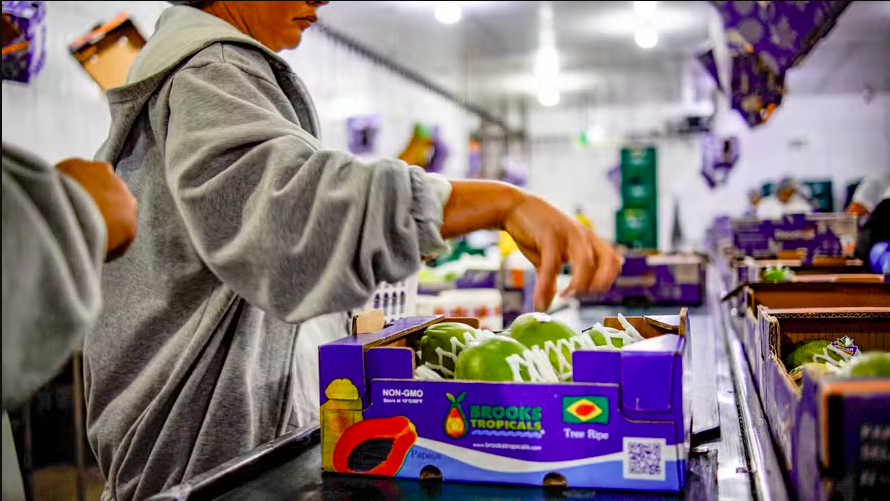
Published 12/02/2024 19:08 | Edited 12/02/2024 19:19
After 25 years of negotiations, the trade agreement between Mercosur and the European Union appears to be closer than ever. In recent days, meetings held in Brasília have brought significant progress, resolving issues that were pending. Now, the final decision rests with political leaders from both regions, at a crucial moment for the future of the pact.
Sources involved in the process confirmed to the columnist UOL Jamil Chade that, despite some points still open, technical negotiators consider the agreement “well underway”. However, definitive approval depends on delicate political discussions, especially within the European Union, where countries such as France and Poland have expressed strong opposition.
Advances and challenges on the European political board
The main obstacle is the French resistance, led by President Emmanuel Macron, who is facing pressure from farmers and nationalist sectors opposed to the agreement. Recently, the French Parliament passed a symbolic resolution rejecting the pact, reflecting domestic discontent. The Polish government also took a stance against agricultural opening, joining France in an attempt to form an opposition bloc within the EU.
Despite this, Brussels and Brasília remain optimistic. Sources indicate that the European Commission, responsible for leading the negotiations, can move forward even without the consent of Paris, as long as it obtains the approval of the Council of Europe and the European Parliament.
French resistance is intensifying due to the prospect of opening the European market to 60,000 tonnes of Mercosur meat per year, which has sparked protests by farmers in several European cities. Macron fears that this measure will strengthen the far right in the 2025 presidential elections, deepening rural dissatisfaction and leading this segment to adopt a nationalist discourse.
Meanwhile, countries such as Germany, Spain, Portugal and the Scandinavians remain Brazil’s allies, supporting the agreement. Italy, in turn, hesitates between protectionist interests and the need to expand its exports to South America.
Concessions and environmental concerns
In recent months, Brazil has won important concessions from the Europeans, such as the exclusion of the health sector from the commitment to open Mercosur. This decision protects public purchases of the Unified Health System (SUS) from foreign suppliers, maintaining national control over bidding for medicines and inputs.
However, Mercosur remains cautious in relation to the environmental measures proposed by the EU, which could punish countries that do not meet conservation targets with tariffs. There are fears that, after the agreement is implemented, Europeans will use these measures to justify additional protectionist barriers from 2025 onwards.
Brazil requires a regulatory mechanism that allows environmental tariffs to be retaliated against with barriers to European products, such as automobiles and machinery, if necessary. This demand reflects the concern about maintaining balance in trade between the blocks.
Next steps and expectations
An official announcement may take place at the Mercosur summit, scheduled for December 5th and 6th, but this will depend on political arrangements within Europe. While technical negotiators believe they have done their part, the decision is in the hands of political leaders, who will need to balance national and regional interests to move forward.
The agreement, if confirmed, will represent a milestone in the relationship between the two blocs, with the potential to boost bilateral trade and reinforce global integration. However, the dispute between protectionist interests and the need to expand markets still leaves the outcome open.
“It is a historic moment, but it requires prudence”, warns a source close to the negotiations in Brasília. With political decisions pending, Brazilian diplomacy is betting on building consensus to overcome the last obstacles. The future of the pact now hangs in the balance.
Source: vermelho.org.br

